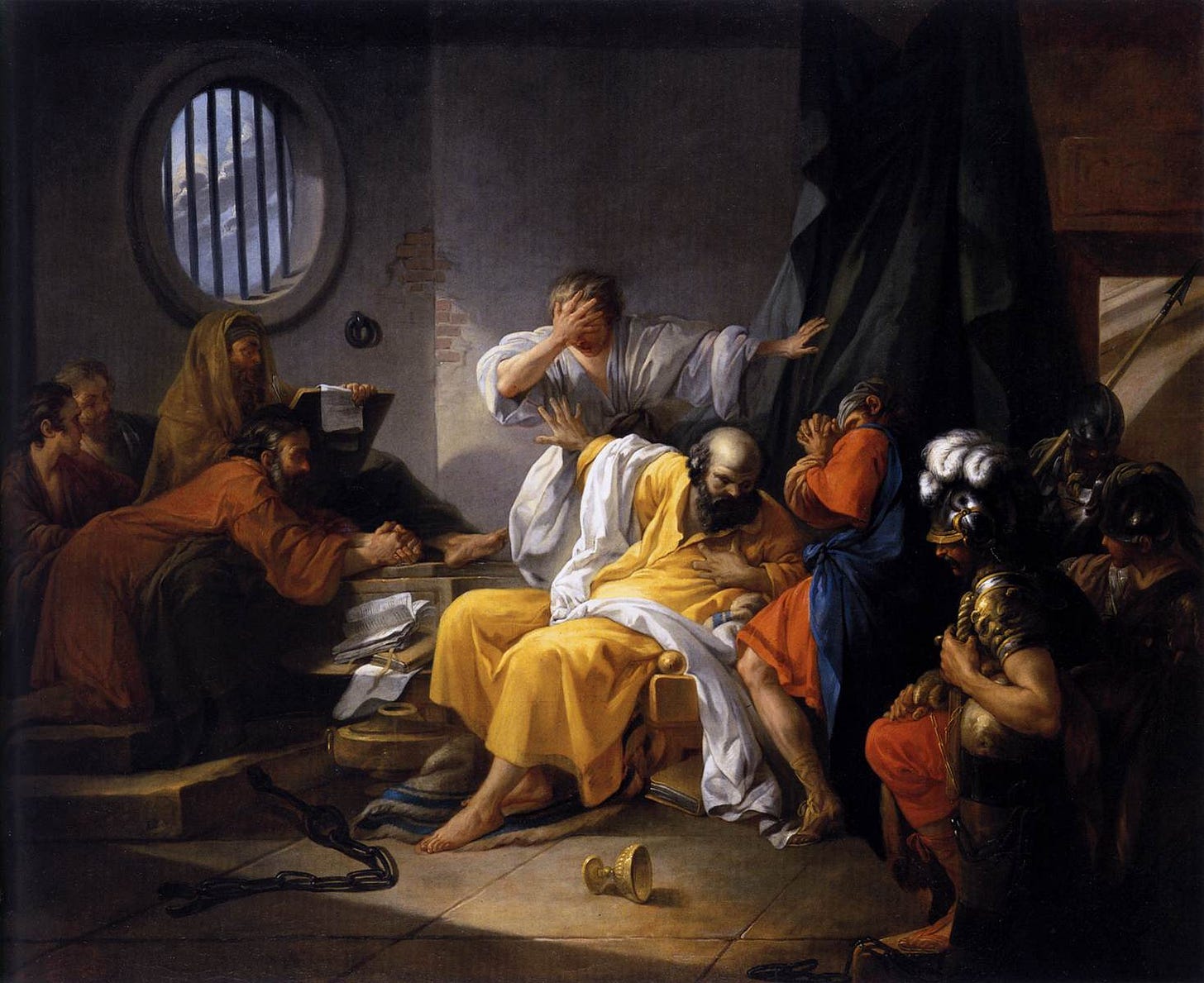Why Did The Athenians Kill Socrates?
On the life and death of Socrates

The hour of departure has arrived,
and we go our ways -
I to die, and you to live.
Which is better God only knows.
~ Plato, The Apology of Socrates
Nobody knows why the Athenians chose to put Socrates to death.
Indeed, getting any kind of fix on the life and death of Socrates is hard. The man did not believe in writing things down, fearing, apparently, that a reliance on written letters would dull the mind and induce forgetfulness. Neither did the Greeks yet see the value in recording things for the future, even if Herodotus - sometimes called the father of history - began writing his Histories during the lifetime of Socrates.
All we know of him is thus the little that comes from the words of others. Plato, his student, cast Socrates as a character in many of his texts. So did Xenophon, though both he and Plato were friends of the great philosopher and hardly the most unbiased of sources. Plato, especially, later used the character of Socrates as a mouthpiece for his own ideas, and modern readers often struggle to separate the thoughts of the character from those of the real man.
Still, some things about the trial and execution of Socrates seem reasonably clear. It took place in the year 399 BC, shortly after a period of turmoil and tyranny in the ancient city of Athens. Socrates, by then a man of about seventy years, was somehow implicated in that tyranny, or at least closely associated with the tyrants themselves.
The trial itself rested on two accusations. First, that he had morally corrupted the youth of Athens, presumably through his teachings on philosophy. And second, that he had committed acts of impiety against the Gods of Athens by denying their existence and by introducing new divinities.
Those, at least, were the official charges. And maybe there was something to the claims of impiety, since Socrates apparently believed he was accompanied by some kind of personal spirit, a daimonion, who spoke to him and gave him guidance. The Athenians were open to new Gods - after all, they already had quite a few - but perhaps they were not comfortable with this new kind of god attached to a single person.
Almost certainly, however, there was more to it. The charges against Socrates have often been described as vague, and even if he was guilty of them, they hardly seem serious enough to warrant the death penalty. We might believe Socrates antagonised the jurors in his trial, an idea backed up by Plato’s own record of the events.
But others think there were political reasons behind the trial and penalty. Some speculate he was treated as a sacrifice or a scapegoat, a figure that through his execution could restore peace and unity to a troubled city. Or perhaps he had simply annoyed the elite of Athens through his incessant questioning and desire to expose ignorance. Maybe they sought revenge for this humiliation, and the trial offered an opportunity to take it.
In the end, Socrates did not challenge their verdict. Once the order for execution came he followed it, and despite being offered the opportunity to flee Athens he chose instead to stay. Perhaps he accepted his role as a sacrifice, or simply wanted to stay true to his lifelong belief in obeying the orders of authority. Whatever it was, when the poison brew of hemlock prescribed for his death arrived, he cheerfully raised his cup and drank the deadly mixture.

